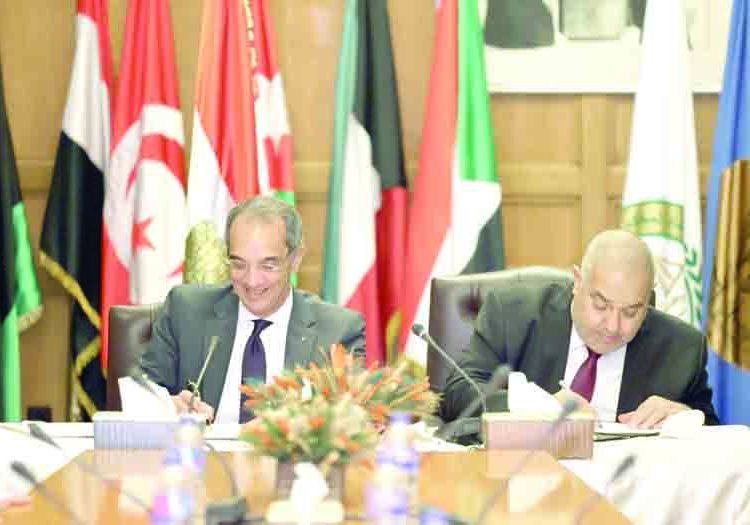The President of the Supreme Constitutional Court (SCC) Saeed Marei, and the Minister of Communications and Information Technology Amr Talat have signed a protocol of co-operation between SCC and the Ministry of Communications and Information Technology (MCIT) to continue the automation and development process of the work system at SCC. The protocol builds on the success of the previous protocols, and acts as a renewal of the previous protocol of co-operation.
Marei underlined the significance of co-operation with MCIT to digitise and develop SCC work system using modern technological means. SCC is keen to keep pace with modern Egypt, like other state institutions, he said, adding that SCC follows Egypt’s renaissance project, implemented under the leadership and patronage of President Abdel Fattah El Sisi. Marei commended MCIT efforts to employ ICT in all judicial agencies, implement digitisation projects, and introduce technology nationwide.
For his part, Talaat highlighted that the protocol builds on the productive co-operation with SCC and the projects carried out to use the latest technological systems to develop the internal electronic work system, to reach a digital Constitutional Court.
The protocol aims to promote the use of electronic transactions in SCC, and develop the electronic litigation process. The protocol also aims to improve the quality of SCC digital services, establish digital communication with the various state institutions, document and preserve the Court’s heritage, digitally, and make information available on SCC website. This is in addition to developing the technical skills of SCC employees in IT fields, added the ICT Minister.
The protocol lasts for three years. It involves implementing a number of projects, including managing lawsuits electronically. Moreover, the protocol provides for carrying out a training and human development project to provide specialised technical training on portfolio, Programme and project management, and technological risk management in projects. This is in addition to providing training on all systems, devices and equipment. The protocol budget amounts to LE38 million.






Discussion about this post